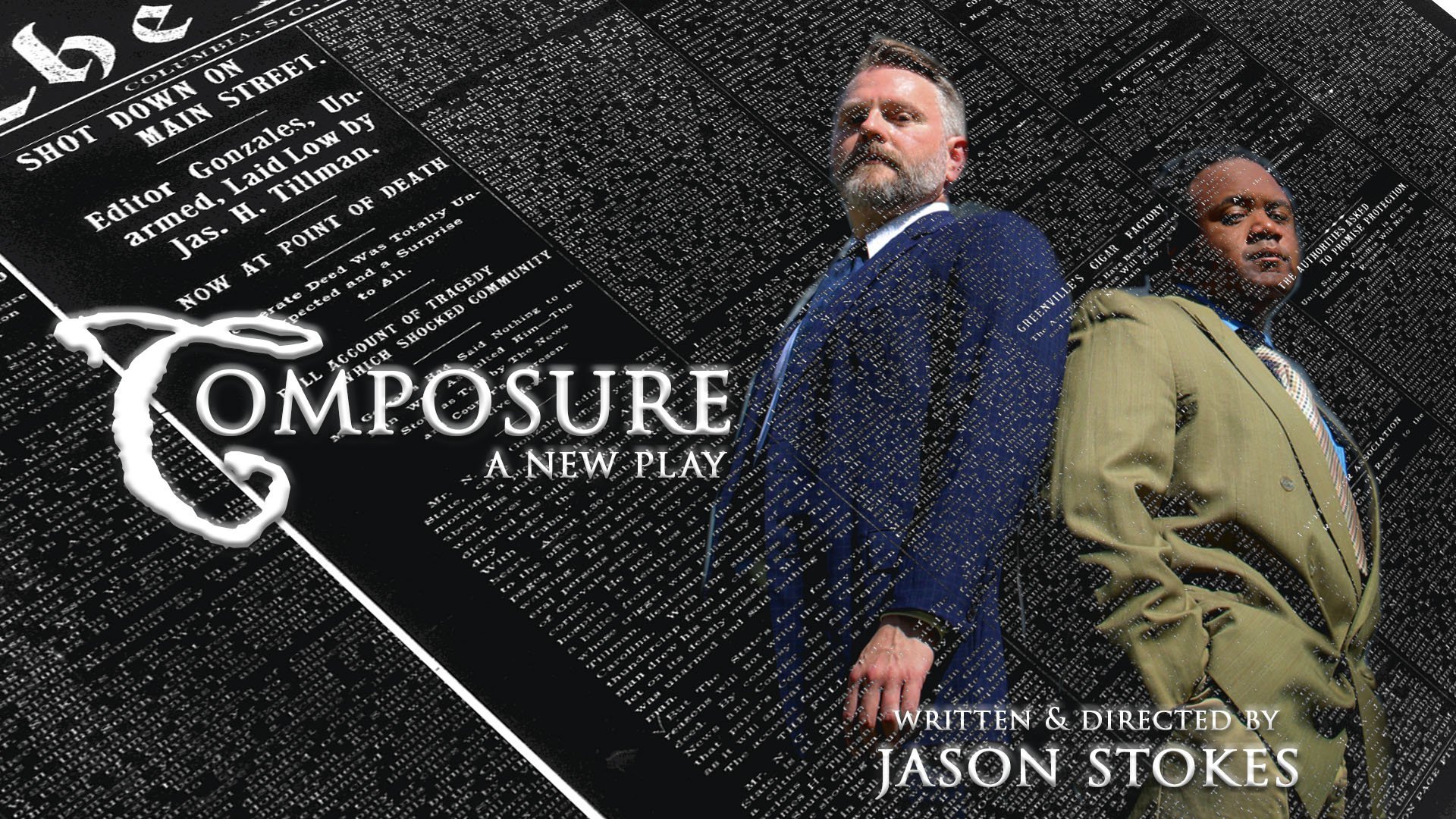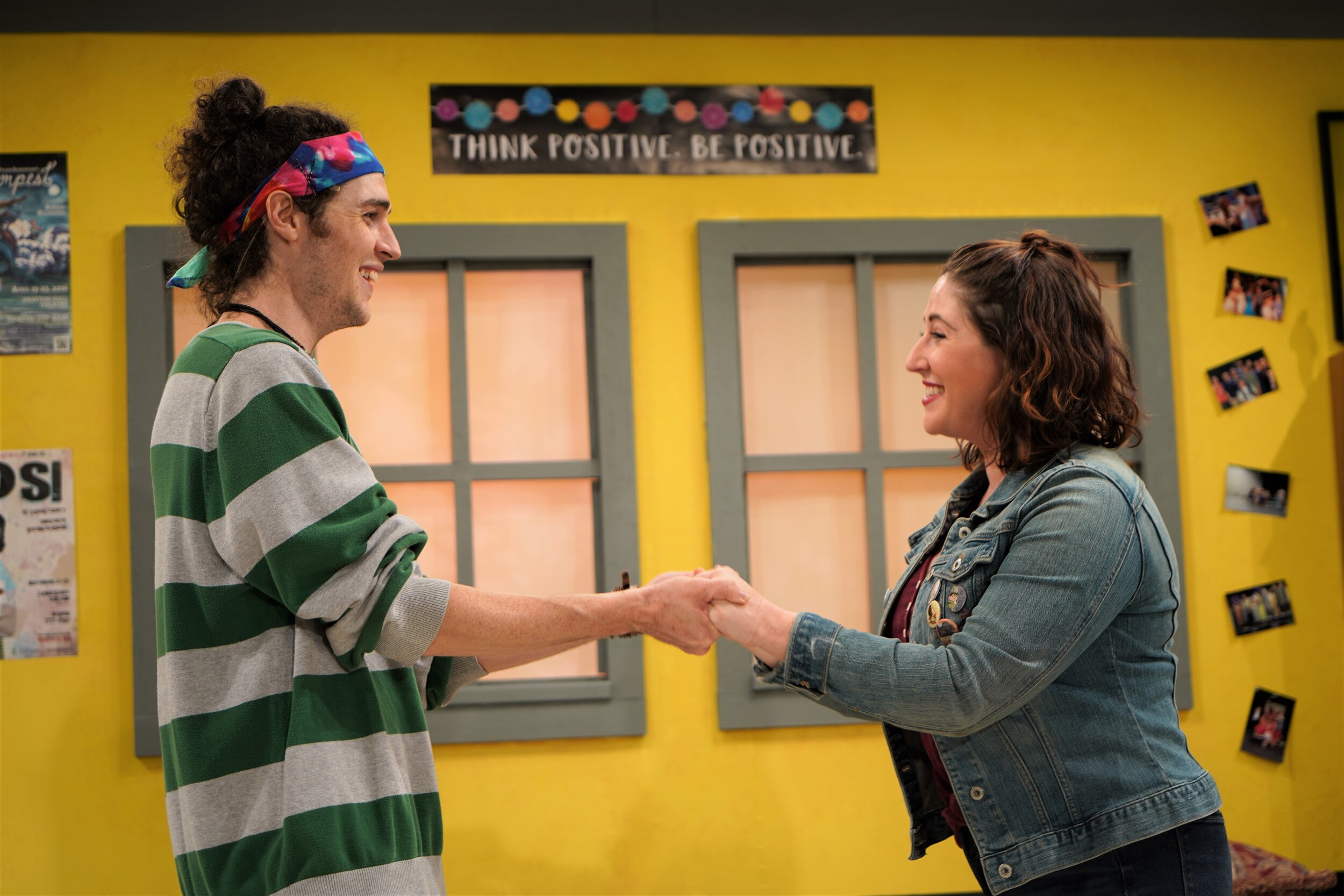January 18 – 27
Written by Lauren Gunderson
Directed by Ginny Ives
(Trigger warning – this script tackles the issue of domestic violence.)
Exit, Pursued by a Bear is Trustus’ Side Door’s current offering. Nan has finally had it with her husband Kyle’s physical and emotional abuse, and paybacks are hell. Assisted by her forever “ride or die” bestie, Simon and her new friend, a stripper named Sweetheart, Nan hatches a plan to teach Kyle the lesson of his life. Kyle comes home, tosses back a drink, and passes out in his favorite chair. Nan enters and proceeds to duct-tape him to said chair. When he comes to, he is made to watch Nan, Simon and Sweetheart act out scenes from a marriage – his marriage to Nan. Nan lets him know from the start that the “final act” is to cover the room with honey and venison (acquired through Kyle’s illegal hunting techniques), then leave Kyle to be devoured by bears.
I love bears. Always have. Dancing Bear on Captain Kangaroo, and Pooh Bear. Smokey the Bear. Yogi Bear and Booboo. Paddington. The list of cute, adorable bears goes on and on. B-HP’s mascot was a bear. (Go Bars!!!). Real bears, on the other hand, are not particularly cute and adorable. Shakespeare used a bear quite cleverly in A Winter’s Tale - from whence cometh the title at hand. (Duh.) As a recovering Baptist, I will remind you that God sent bears to devour the small children who mocked the prophet Elisha (2nd Kings 2:23 – 24). Timothy Treadwell and his girlfriend learned the hard way that bears are not our friends. I digress…
Kyle is sore afraid. As the evening progresses, he beseeches Nan not to follow through with her plan. He begs, he pleads, he coerces. He pulls out all the tricks that charming, attractive, magnetic abusers have up their sleeves, and many times Nan very nearly succumbs to his charms. Simon and Sweetheart are there to make sure she doesn’t.
The “who are theys” in this production are Liza Hunter as Nan, Isabella Stenz as Sweetheart, and Bryent Taylor Marshall as Kyle. Clint Poston, a veteran of numerous Trustus productions, rounds out the cast as Simon. All four of these actors inhabit their characters with passion, humor, doubt, and determination. Some of the action in this play is ridiculous, absurd and over the top, but Ginny Ives’ direction, combined with the skills of each of these actors, creates very believable characters. We know these people. We, at least I, grew up with these people. Sweet, timid Nan; macho, violent, angry Kyle, “I’m gonna be an actress!” Sweetheart; and loyal, brave, and fearless Simon. Lord love all these people who grew up in the rural South. Bless their hearts, and I mean that with every fiber of my being. It ain’t easy bein’ weird. Especially when it’s the Kyles of the world who are considered “normal.”
Hunter’s Nan is the human version of a bunny rabbit. Sweet and fluffy and you just want to smoosh her widdle cheeks together and boop her nose! And then you realize this bunny has teeth. She moves from floofy bunny to Monty Python bunny with precision.
Isabella Stenz is so refreshing as Sweetheart, the stripper whose ambition is to be a real actress. She stays committed at every moment. Take a second to watch her when she isn’t the focus of the action.
Clint Poston is the cheerleading bestie we all want. From high camp to deadly serious, Poston’s Simon is the best sidekick ever. And the boy got some stems. Just saying.
Bryent Taylor-Marshall as the utterly horrid Kyle. Argh! He is an awful, reprehensible, hot-tempered card-carrying NRA member (wait, no. He’s too cheap to pay the dues), Fox-watching abusive redneck. And he is so cute and sweet and apologetic and coercive. I wanted to release him from his duct tape shackles, but I also wanted to bash his head against rocks.
I anticipated a “Misery” moment. Not gonna tell ya.
Dewey Scott-Wiley’s set is true. I know that trailer. The rutted driveway leading from the tar and gravel road up to the front porch. (We don’t see it, but we know it’s there). The deer head mounted on the wall. The hideous recliner. Absolutely evocative of rural upstate Georgia. (And South Carolina).
Sound and lighting design fit this production perfectly. The use of projections for scene changes and some narration is excellent.
A fun evening. Nothing but Bonfires.
Housekeeping: The show runs right at 90 minutes without intermission. Plan accordingly. The Side Door is an “intimate” space, so watch your feet so as not to trip up the actors. Get there early as the space fills up quickly. Beer, wine, soft drinks, and snacks are available for purchase.
Curtain is at 8:00 p.m. so don’t be late. There’s no sneaking into this space. Tickets are $22.50 - $25.00.
If you or someone you love is a victim of physical or emotional violence, please don’t suffer in silence. The National Domestic Violence Hotline number is 800-799-7233. Sistercare’ s 24-hour crisis line is 803-765-9428. The Women’s Shelter can be reached at 803-779-4709. And yes, there is help for men who are victims. Oliver Gospel Mission at 803-254-6470, the National Domestic Violence Hotline, and the SC Department of Social Services are available to you. The play is funny. The issue is not.











